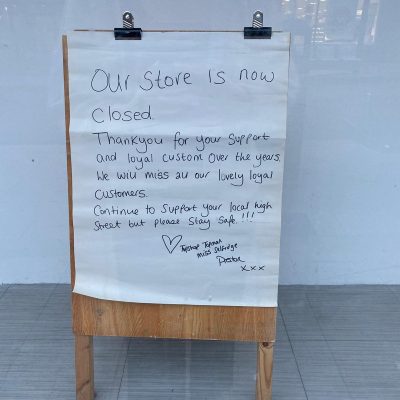An April 2020 study looked at Google Trends data and found that searches related to loneliness, boredom, and worry have significantly increased since the coronavirus pandemic began . With Tier 3 restrictions in Lancashire meaning we cannot see friends and family outside of our household bubble many of us may be fearing the impacts this will have on our loneliness – but something we may not have thought about is the long term loneliness this pandemic could cause as we become more distant from loved ones, begin to fear social contact and rely more and more on technology for our interactions.
When we think about the loneliest in society we are often guilty of picturing the elderly living on their own. This is not to say that those people do not need support but rather that we are only seeing part of the picture. This pandemic we have countless students away from home for the first time, living with strangers they may not get on with, we have people who lived alone but previously maintained vibrant social lives and people whose only day to day interaction was at work all being completely isolated by the pandemic.
Children and Loneliness
In 2018 children age 10-15 years, who are often overlooked when we discuss loneliness, reported experiencing loneliness – especially those from poorer backgrounds. According to a study in 2018 by the Office for National Statistics 27.5% of children age 10-15 who received free school meals said they were “often” lonely, compared with 5.5% of those who did not. These numbers are now likely to be higher due to reduced social interactions during the pandemic.
Whilst the return to school may have improved loneliness for our children they are still unable to socialise outside of school and older children have to distance much like adults.
In our lockdown interviews Marie spoke about the significant changes in her 7 year old granddaughter, “she is getting moody…she has days where she is getting emotional…that isn’t good”. Marie’s comments highlight the importance of mental health in this pandemic.
Authors of the new loneliness study found that the duration of loneliness—rather than the severity of it—is a strong predictor of mental health problems in children and adolescents.
Health Central reports that the longer children are isolated from their social circles, the more likely they are to struggle with depression or anxiety, even up to a decade later. We need to be prepared for the long term impacts socially caused by coronavirus and consider ways to reverse this or support those impacted.
Keeping schools open may be one of the best things we can do to try and keep children’s lives as normal as possible however as numbers rise across the country there have been calls to once again close schools to reduce virus transmission and save lives.
Technology- the answer or the cause of loneliness?
There is no doubt that technology has improved our experience of lockdown, it allows us to keep in touch with loved ones and be connected with the outside world even when were locked down. But is our reliance on technology creating negative in person social interactions?
Medium highlights that “conversations that now happen through social media and have taken the place of traditional interactions is causing people to leave their houses less and less since they do not need to leave to communicate with others. This can lead to social isolation. Essentially, instead of spending time in person with friends, we just call, text, instant message them or send a 10 second snapchat”. Whilst utilising technology for our social interactions came out of necessity in the pandemic there is a fear that we become more comfortable with this form of communication and that we could be facing an increased amount of people staying isolated when the pandemic is over. Making sure that we find a way to combat this isolation will be important. There is a possibility that the changes the pandemic has had on our social interactions will influence us for decades.
In our lockdown interview Neil talked about how the technology to work from home could create a pandemic of loneliness, “I think a lot of the working from home will continue with the technology…that’ll drive the cost down…I think that’ll have a negative effect as you’ll find people are more isolated”. Neil’s concerns are reflected in the results of a recent survey which found that 80% of Brits feel that working from home has negatively impacted their mental health.
Read more about the impact of technology in the pandemic in our First Thoughts Article: Working from Home and Video Calls
How do we decrease loneliness?
With technology and the pandemic increasingly forcing us away from real life social interactions, we must take action to make sure that we are brought back together after the pandemic.
As we become accustomed to isolation and physical distance we must find ways to rebuild our communities and friendships and fight against a pandemic of permanent loneliness. In our lockdown interviews Karen spoke about how lonely her friend had become during the pandemic and how difficult the situation had become.
After this prolonged period of isolation, the sudden shock of new social distancing and lockdown measures, how do we recover from the loneliness that might have set in?
If there is a vaccine we have the opportunity to interact without fear however this may be hard. Government investment in community centres, libraries and green space will be important to allow use to make new social connections and provide a safe space for those who remain isolated and lonely to re-join our communities with help.
As we come out of the pandemic we will have to decide what we think community means and how important it is to us. We have the opportunity to build a better future but we will face obstacles. We must not let this isolation take hold and see it as a temporary measure.
Watch the video below to see how people in Preston felt during the pandemic, can you relate?
#JoinTheConversation What impacts do you think the pandemic will have on long term loneliness?
You may also be interested in:
First Thoughts Article: Has coronavirus damaged or restored our sense of community?
Artist Response: Stef Portersmith, Caged Birds
The Living City project is produced by They Eat Culture, & supported by the Community Lottery Fund & Arts Council England.









